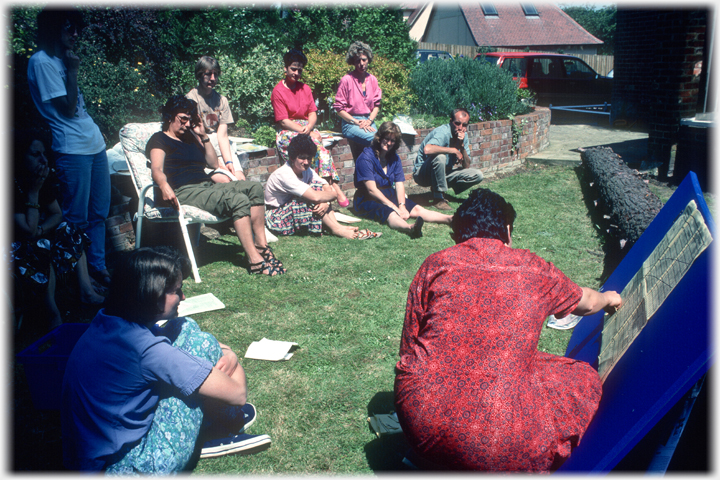

Active Education
I believe it will be absolutely necessary that you should prevail on our future masters to learn their letters. [Commonly paraphrased as “Now we must educate our masters.”]
Robert Lowe (1867)

Henderson: (9.19) ...we are moving towards … something like a broadcast society, where you are purely receptive, all you are doing is just taking in content which is being beamed into your eyeballs or your air-pods...
Sayers: (10.45) ...is this the idea that it is a more active process to read because you do it at your own pace, you can pause and cogitate and come back to it, so you are in control of it...
Sayers: (15.55) It does also genuinely change the politics doesn’t it, there are a lot of ways in which democracy and the whole political conversation are shifting very rapidly and one way of describing it might be the “en-stupid-ification.
Freddie Sayers and Jared Henderson (2025)

In 1867 the Second Reform Act extended the vote to many men and brought a wave of educational reforms and improvements in its wake. The need was seen, in a democracy, for education and literacy to defend against the onslaughts of
power,
 On the importance of power in psychological matters.
money,
greed
On the importance of power in psychological matters.
money,
greed
 The place of greed in humanities problems.
and corruption. We know that learning and passivity are negatively linked: the more mentally active we are, the more we learn. Listening to lectures or watching
screens
The place of greed in humanities problems.
and corruption. We know that learning and passivity are negatively linked: the more mentally active we are, the more we learn. Listening to lectures or watching
screens
 On not underestimating the problems of a broadcast society.
results in retention rates below 20%, at the other extreme, if we become teachers 90% retention becomes common; in the photo students are teaching in the sense of helping others
learn;
On not underestimating the problems of a broadcast society.
results in retention rates below 20%, at the other extreme, if we become teachers 90% retention becomes common; in the photo students are teaching in the sense of helping others
learn;
 The core importance of passing on what we discover.
the ‘teacher’ is observing. The Sayers led discussion (quoted above) brought together recent evidence of a decline in literacy and intellectual ability, with the worry that, in an ever more ‘broadcast’ society, which renders large sections of the demos passive, we may be increasingly failing to ‘educate our masters’, so hastening the end of democracy.
The core importance of passing on what we discover.
the ‘teacher’ is observing. The Sayers led discussion (quoted above) brought together recent evidence of a decline in literacy and intellectual ability, with the worry that, in an ever more ‘broadcast’ society, which renders large sections of the demos passive, we may be increasingly failing to ‘educate our masters’, so hastening the end of democracy.
The Second Reform Act of 1867 had been opposed by Robert Lowe, then a minister in Palmerston’s government, but once it passed its third reading, he accepted the new world order, and that acceptance has often been quoted as “Now we must now educate our masters”. In fact his words as recorded by Hansard, Volume 188, on 15 July, 1867, in column 1549, were as shown above. The discussion The Dawn of Post-literate Society with Freddie Sayers (chairing), James Marriott and Jared Henderson was placed on the internet on 27th August 2025 by UnHerd which is said to be sympathetic to some rather reactionary ideas, a common bent among philosophers from Plato to Heidegger; having dubious ideas is no barrier to having profound ones. The programme can be viewed on YouTube at: https://www.youtube.com/watch?v=u4jW8MOxIKY. Just below the control line, on the page, is an option of transcript - given the interestingly self-referential content, a mitigation!
A photograph from a course run by the NGO Health Unlimited held in the summer of 1990 in Suffolk.
Above, hovering on blue introduces a link: click to go, move away to stay.

Saturday 13th September 2025
 ...guide to this site
...guide to this site